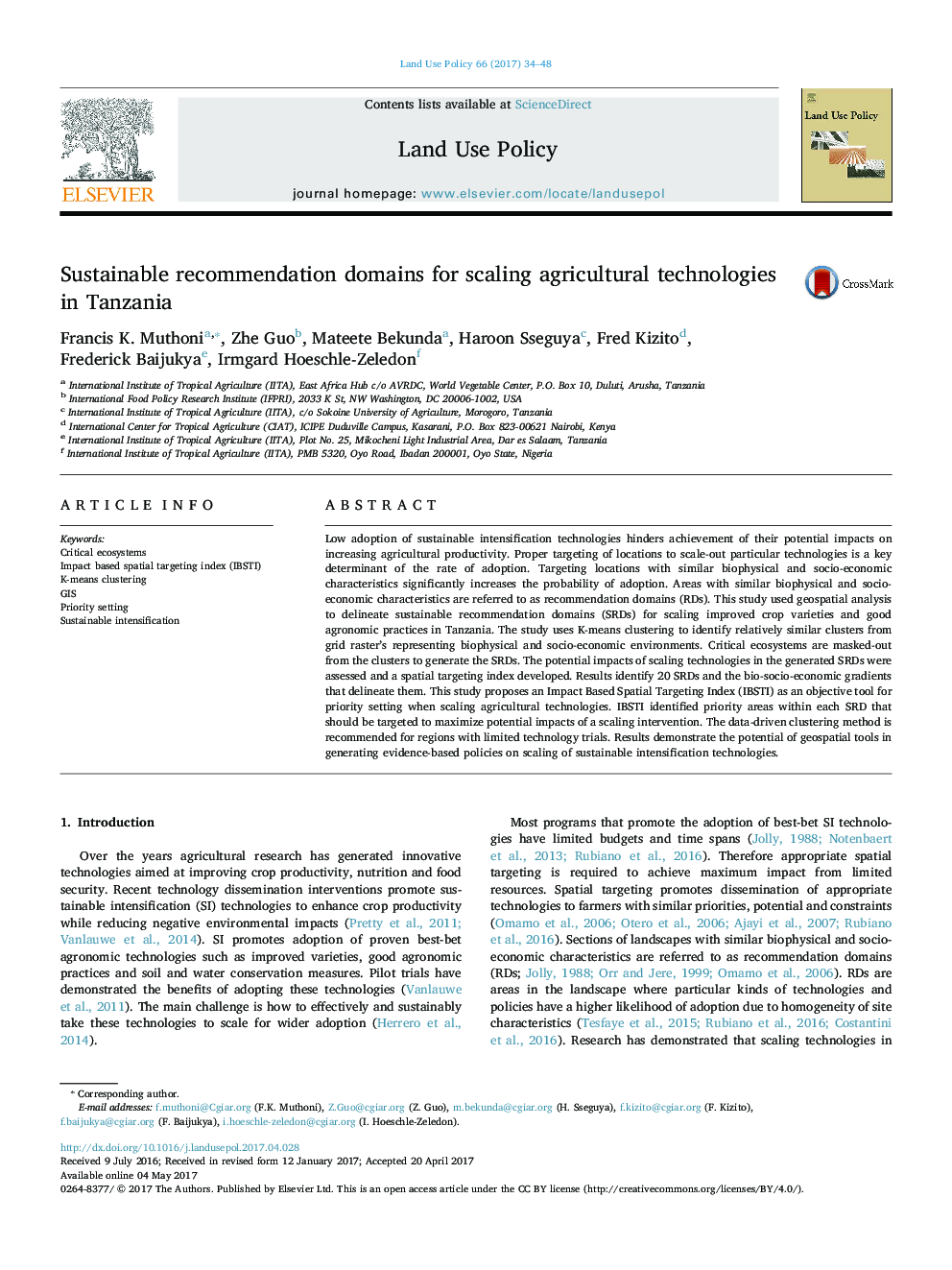| کد مقاله | کد نشریه | سال انتشار | مقاله انگلیسی | نسخه تمام متن |
|---|---|---|---|---|
| 6460896 | 1421817 | 2017 | 15 صفحه PDF | دانلود رایگان |
- Scaling technologies in sites with similar bio-socio-economic characteristics enhances potential of adoption.
- Homogenous clusters are generated from grid rasters using Kmeans algorithm.
- An Impact Based Spatial Targeting Index (IBSTI) developed for priority setting.
- IBSTI identified priority SRDs that should be targeted to maximize potential impacts of a scaling intervention.
- Demonstrate potential of GIS to generate policies on scaling of sustainable intensification technologies.
Low adoption of sustainable intensification technologies hinders achievement of their potential impacts on increasing agricultural productivity. Proper targeting of locations to scale-out particular technologies is a key determinant of the rate of adoption. Targeting locations with similar biophysical and socio-economic characteristics significantly increases the probability of adoption. Areas with similar biophysical and socio-economic characteristics are referred to as recommendation domains (RDs). This study used geospatial analysis to delineate sustainable recommendation domains (SRDs) for scaling improved crop varieties and good agronomic practices in Tanzania. The study uses K-means clustering to identify relatively similar clusters from grid raster's representing biophysical and socio-economic environments. Critical ecosystems are masked-out from the clusters to generate the SRDs. The potential impacts of scaling technologies in the generated SRDs were assessed and a spatial targeting index developed. Results identify 20 SRDs and the bio-socio-economic gradients that delineate them. This study proposes an Impact Based Spatial Targeting Index (IBSTI) as an objective tool for priority setting when scaling agricultural technologies. IBSTI identified priority areas within each SRD that should be targeted to maximize potential impacts of a scaling intervention. The data-driven clustering method is recommended for regions with limited technology trials. Results demonstrate the potential of geospatial tools in generating evidence-based policies on scaling of sustainable intensification technologies.
170
Journal: Land Use Policy - Volume 66, July 2017, Pages 34-48
